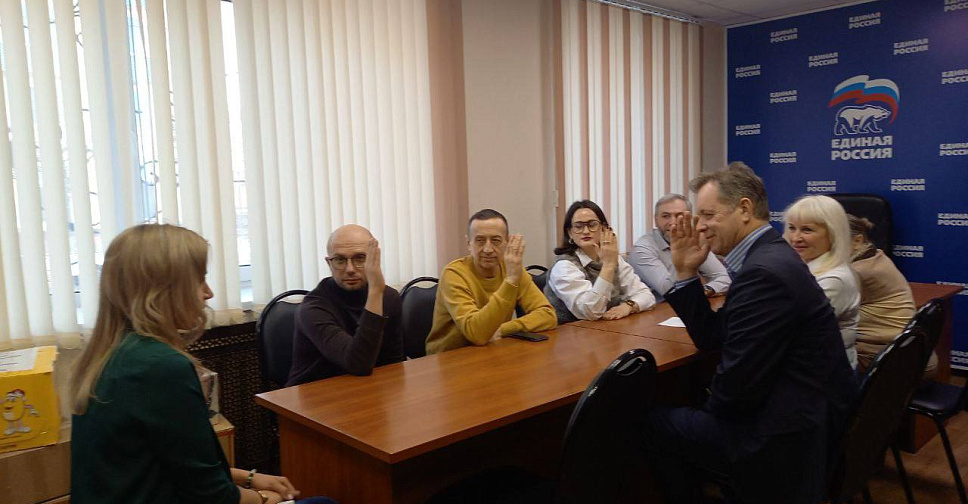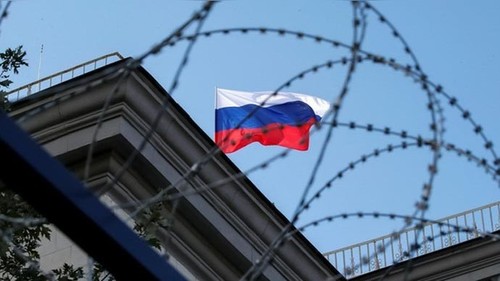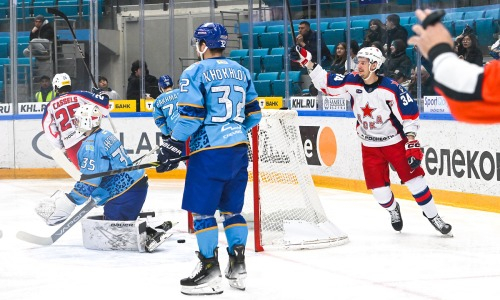Russian media report that the Kremlin plans to deploy ballistic missiles close to its border with Finland. It’s the latest in a series of military and hybrid threats that Russia has made against the Nordic state since it joined NATO in April last year in the wake of Moscow’s invasion of Ukraine.
The Russian newspaper Izvestia reported Monday that a new brigade will be deployed in the Karelia region bordering Finland, equipped with an Iskander-M ballistic missile system.
The Izvestia report quoted an ex-commander of Russia’s Baltic Fleet, Admiral Vladimir Valuev, who told the newspaper that “the formation of a missile brigade is a very timely decision. This is an adequate response to Finland’s accession to NATO.”
Despite the proximity to Finland, the potential deployment is not raising alarm bells in Helsinki, said security analyst Charly Salonius-Pasternak of the Finnish Institute of International Affairs.
“This is really not news. And of course, announcing a thing and then doing something about it are two very different things when it comes from Russia. So overall, we really haven’t seen a lot other than rhetoric,” he told VOA.
Finland has warned that it is facing varied security and hybrid threats from Russia since it joined NATO.
In the second half of 2023, following Finland’s accession to the alliance, over 1,300 migrants from countries including Yemen, Syria and Somalia began to arrive at the Finnish-Russian border to try to claim asylum.
Helsinki closed all crossing points along the frontier in November, accusing the Kremlin of weaponizing migration. They were reopened briefly, but swiftly closed again after another surge in migrant arrivals. The closure was extended indefinitely earlier this month.
Finland wants the European Union to help in preventing any future migrant crisis.
Finnish Prime Minister Petteri Orpo hosted the European Union’s Commission President Ursula von der Leyen on a tour of the border region Friday.
“Now we have to find common solutions to stop this phenomenon when Russia uses illegal immigrants against us. We are preparing our own legislation, but we also need EU-level measures,” Orpo said.
Von der Leyen pledged the EU’s support. “This is a new phenomenon. It is a hybrid threat, and it has to be dealt (with) as a hybrid threat to national security. And what we see is that a state is instrumentalizing poor people to put pressure on another state. So that is a clear security issue, and we will certainly be dealing for quite a long time with that, and we will have to prepare for that,” she told reporters at the Imatra border crossing on the Russian frontier.
Finland is building a fence along part of the 1,340-kilometer (833-mile) border and increasing patrols. The government is debating legislation to block asylum-seekers entering from Russia. Von der Leyen said any such measures must strike a balance between protecting security and international obligations on the rights of refugees.
The threats go beyond a migrant crisis, said analyst Charly Salonius-Pasternak.
“The Russian security services, once some of these individuals have gotten to Finland, are seeking to recruit them to then cause further mayhem within Finland.”
It’s part of Russia’s hybrid campaign against Finland and other NATO allies, Salonius-Pasternak added.
“The Russian land forces are, of course, engaged in Ukraine, so we really haven’t seen a lot of (military threats), except some posturing. But there’s certainly an expectation from the Finnish authorities that cyber-attacks, maybe other attacks on infrastructure, as well as this weaponization of humans, will continue. Now that winter is slowly receding here, the long border becomes, of course, much more passable.”
Russia denies trying to create a migrant crisis on the Finnish border. Moscow has described Finland’s accession to NATO as a “historic mistake” that would force it to take what it called “countermeasures.”













